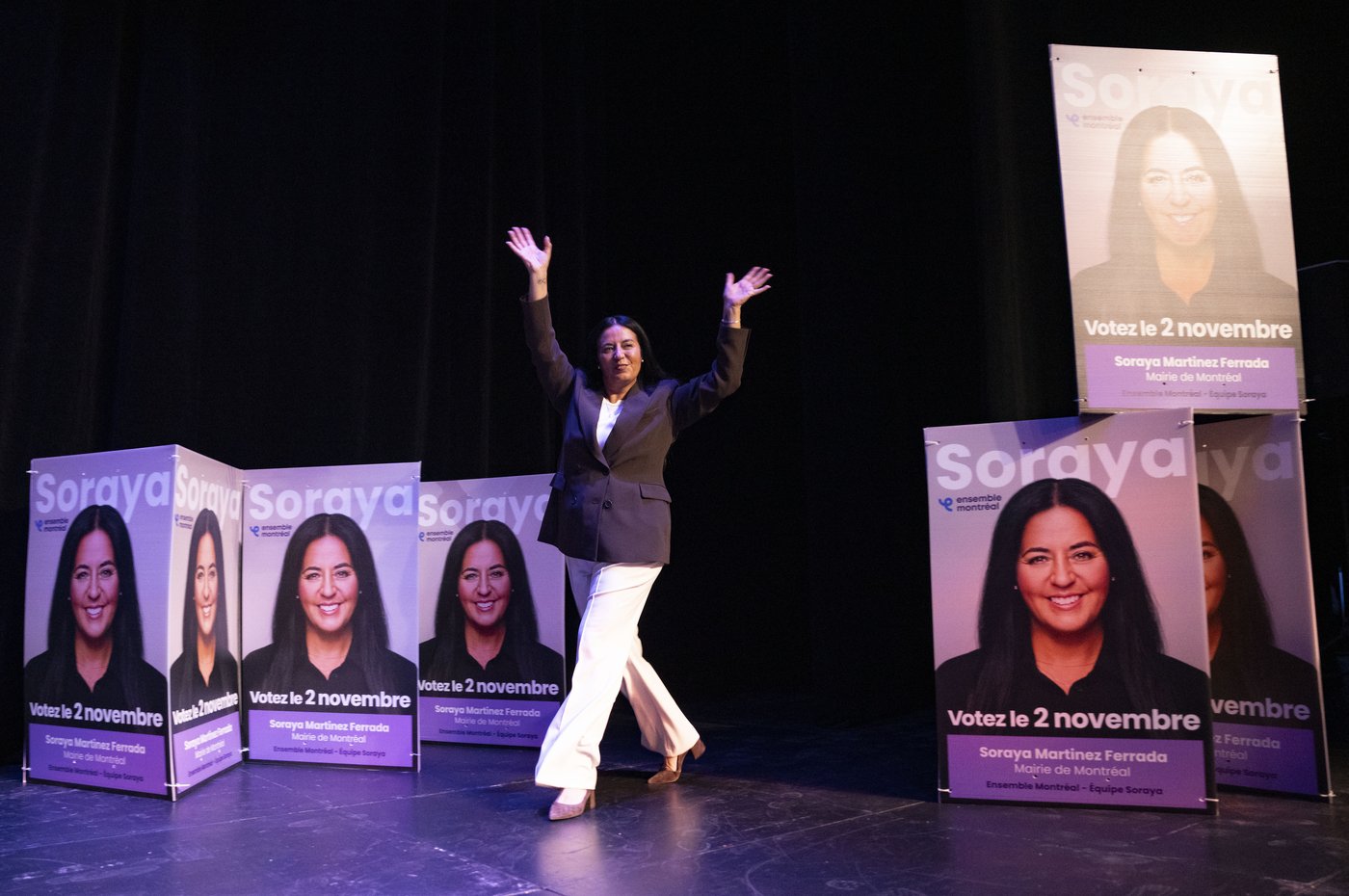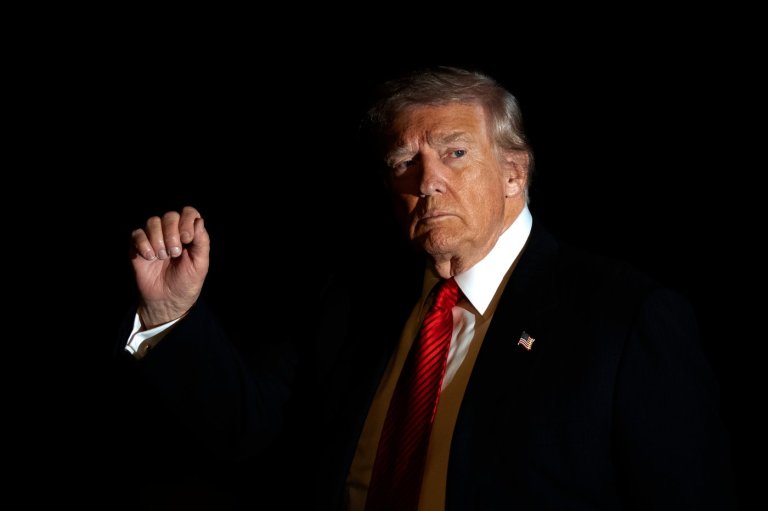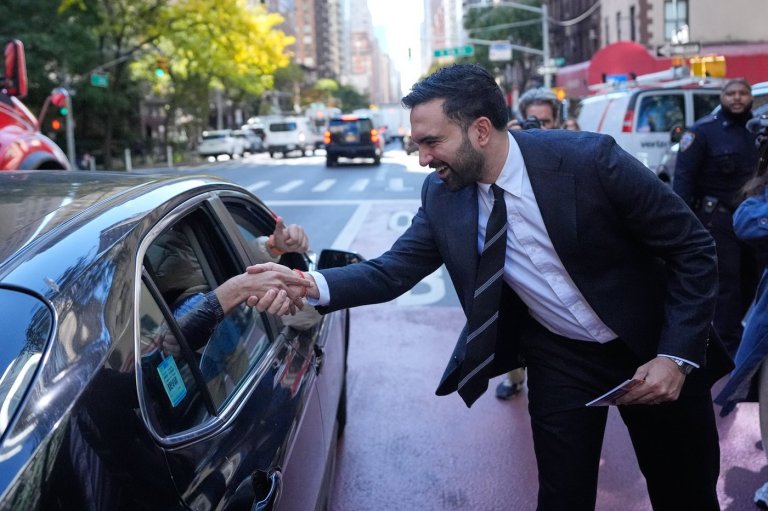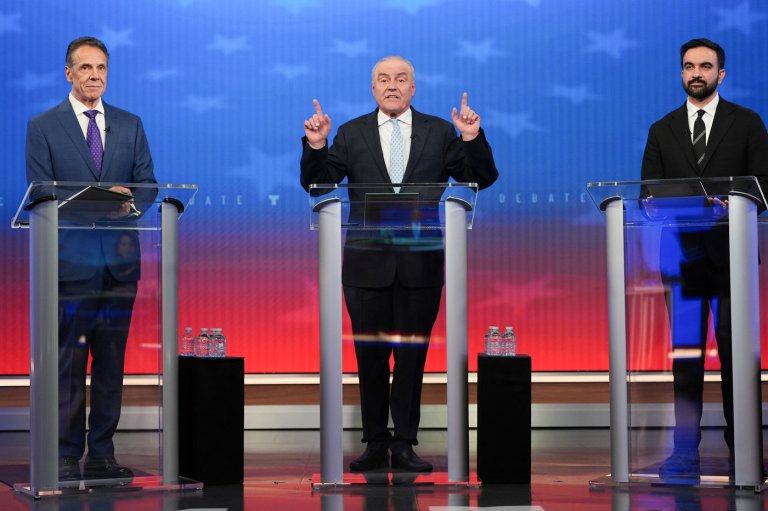Former federal minister Soraya Martinez Ferrada elected mayor of Montreal

MONTREAL — Montrealers have chosen Soraya Martinez Ferrada, a Chilean refugee who became a federal minister, as their new mayor in a vote for change that has unseated the city’s left-leaning government of the last eight years.
Martinez Ferrada, who leads the centrist party Ensemble Montréal, tapped into the dissatisfaction of many Montrealers with the government of outgoing Mayor Valérie Plante, who announced last year she would not seek a third mandate at the head of Projet Montréal. She has defeated Plante’s successor, Luc Rabouin, who said Sunday he would resign as leader of the progressive party.
During her victory speech Sunday night, Martinez Ferrada said Montreal has broken a new “glass ceiling” by electing its first mayor from a diverse background. Plante, who swept to power in 2017, was Montreal’s first female mayor.
“Tonight, Montreal has chosen courage and ambition,” she said. “Tonight, Montreal sent a clear message: change is needed.”
Still, Martinez Ferrada’s victory was tempered by a lacklustre campaign that struggled to hold the interest of many Montrealers, marked by low turnout and a large number of voters who opted against both major parties.
By midnight, Martinez Ferrada had 43 per cent of the vote, leading Rabouin by more than 29,000 ballots. Ensemble Montréal was leading in 35 of the 65 seats on Montreal’s municipal council, which includes the city mayor, 18 borough mayors and 46 city councillors. Projet Montréal was leading in 24 seats, with nearly 90 per cent of polling stations reporting results.
Heading into the election, Projet Montréal held 36 seats, including the mayor, while Ensemble Montréal held 21 seats.
“I gave everything I had, but it wasn’t enough,” Rabouin said in a concession speech shortly before 11 p.m. He said his party had achieved “respectable results … in the face of a very strong wind of change.”
Rabouin said Martinez Ferrada’s win was “historic for the Latin American community and for all Montrealers with immigrant backgrounds.”
Martinez Ferrada arrived in Canada as a Chilean child refugee in 1980, when her family fled the military dictatorship of Augusto Pinochet. She was elected a Montreal city councillor between 2005 and 2009, and made the leap into federal politics in 2019. She was named to the cabinet of former prime minister Justin Trudeau in 2023, but resigned in February to seek the leadership of Ensemble Montréal.
She has pledged to tackle homelessness, a major theme of the campaign, promising to triple the city’s budget for the unhoused, and to end the encampments that have cropped up across the island in the next four years. She has also promised to cut 1,000 city jobs and to increase the frequency of the subway system.
And she has taken aim at bike lanes — a key feature of Plante’s legacy that has sparked a backlash from some drivers and business owners — promising to launch an audit of the city’s bike paths in her first 100 days in office. She has suggested some may be removed.
“Tonight, Montreal is looking beyond the horizon, toward a fairer city, a more inclusive city, a more ambitious city,” she said on Sunday.
Voter turnout suggests many Montrealers felt uninspired by the campaign. With nearly nine out of 10 polling booths reporting, Élections Montréal had counted ballots from only a third of eligible voters. Montreal saw a voter turnout of 38 per cent in 2021, down from 42 per cent in 2017.
The leaders of two minor parties, Action Montréal and Transition Montréal, had together won more than 18 per cent of the vote as of midnight, suggesting a broad current of discontent with both major parties.
Local elections took place across Quebec’s roughly 1,100 municipalities on Sunday. Incumbent mayor Bruno Marchand was re-elected in Quebec City, easily defeating several challengers. He was first elected mayor in 2021. And in Laval — Montreal’s largest suburb and the province’s third-largest city — incumbent Mayor Stéphane Boyer was re-elected with more than 58 per cent support.
Another former federal Liberal minister, Marie-Claude Bibeau, was elected mayor of Sherbrooke, in Quebec’s Eastern Townships region.
Just over half of municipal candidates in the province ran unopposed this year. More than 4,500 candidates, including 564 mayors, have been elected via acclamation.
This report by The Canadian Press was first published Nov. 2, 2025.



Join the Conversation!
Want to share your thoughts, add context, or connect with others in your community?
You must be logged in to post a comment.


















